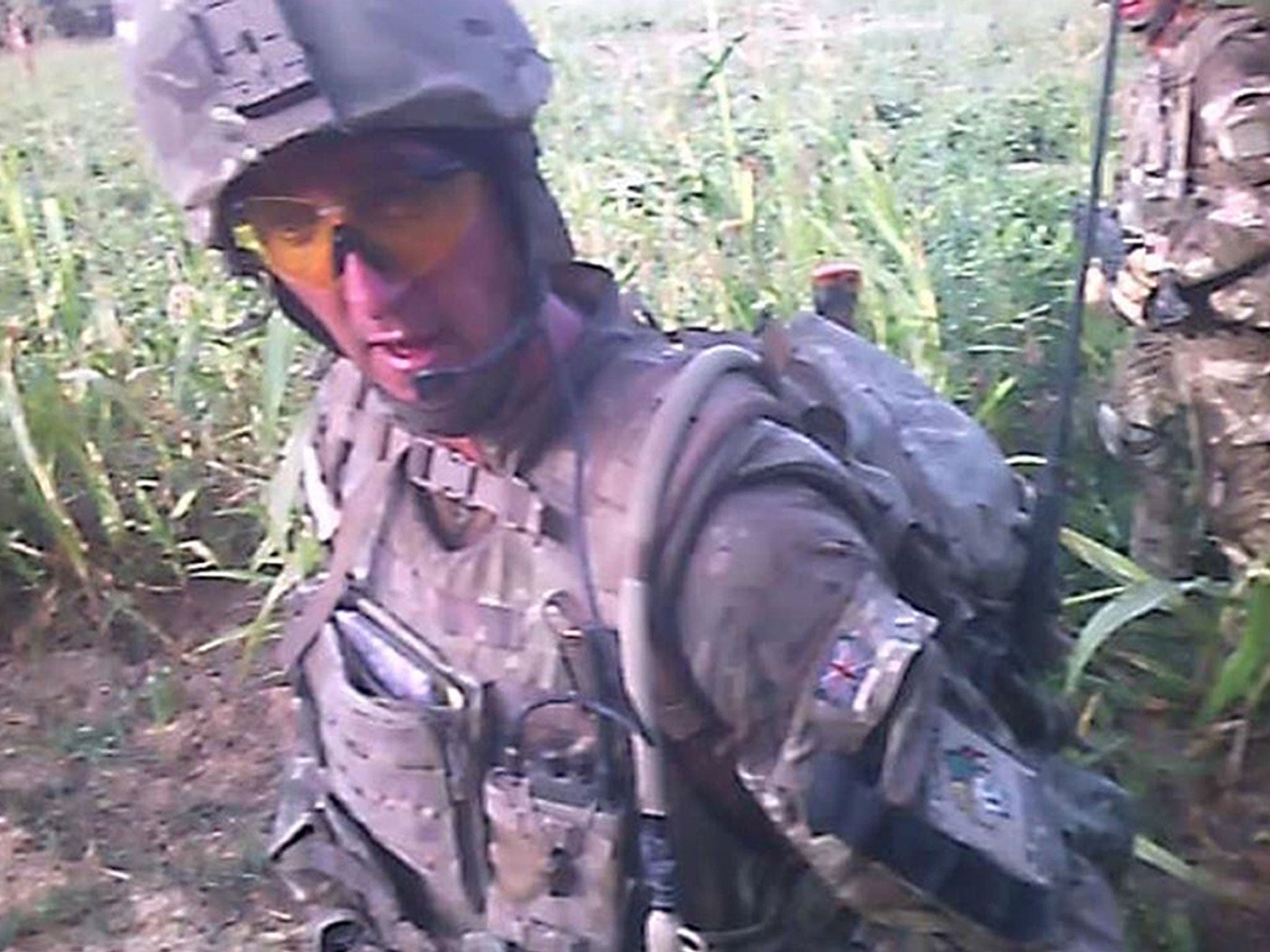Wife of Sergeant Alexander Blackman - the marine jailed for battlefield execution - wants civilian retrial

The wife of a former Royal Marine who was jailed for life for murdering a wounded Afghan insurgent has questioned the validity of his court martial.
Sergeant Alexander Blackman, the first member of the British armed services in recent history to be found guilty of committing murder during an overseas operation, shot a Taliban fighter in Helmand Province, after the insurgent had been fatally injured by an Apache helicopter gunship.
Handing down a minimum 10-year jail term last December, the judge general advocate said that Blackman must be dealt with severely to show that battlefield crimes by UK troops would not be tolerated.
Blackman’s appeal against both the verdict and sentence is due to be heard by the Lord Chief Justice and two other senior judges at London’s Court Martial Appeal Court this week.
However his wife, Claire Blackman, argued ahead of the appeal that a military court was not the right forum to judge the case.
“I don’t know that you can judge someone properly unless you have been on the front line, serving outside Camp Bastion, in a forward operating base. I certainly question whether the members of the board count as his peers,” Mrs Blackman tells Radio Times ahead of Marine A: Criminal or Casualty of War, a BBC1 documentary screened on Wednesday.
“They were all senior officers, and he is a senior NCO, a non-commissioned officer. A civilian jury would have had a better understanding of the situation from a more neutral and equitable starting point. Rank does not play a part in a civilian jury.”
The conviction prompted widespread debate, with the judge accepting that Blackman was suffering from combat stress when he shot the injured prisoner at close range in Helmand in 2011.
The jury of seven, which was made up of four Royal Navy officers, including a submariner, as well as three Royal Marine officers, who found him guilty of what the court termed a battlefield execution.
During the court martial a video was shown of the moment Blackman, known as "Marine A" during the hearing, shot the dying insurgent, who had been injured in a British helicopter strike. He was heard saying: “There you are, shuffle off this mortal coil, you cunt. It's nothing you wouldn't do to us.”
He then instructs his comrades: “Obviously this doesn’t go anywhere, fellas. I’ve just broken the Geneva Convention.”
The marine’s defence was that he thought he was shooting a man who was already dead, a more minor breach of the Geneva Convention, which bans the desecration of enemy corpses.
Mrs Blackman said: “He does bitterly regret that moment. Hindsight is a wonderful thing. There were so many other factors embroiled in that decision. Al was the troops’ sergeant, in charge of all those other lads who were in a dangerous situation.
“The man was an insurgent who had clearly had explosives on him and was in their midst. He’d been badly wounded by a helicopter gunship, and some have argued Al was putting him out of his misery.”
During the hearing, Blackman's barrister argued that he had been brutalised by the horrors of battle in the “most dangerous square mile in Afghanistan”. Blackman, who had completed three tours of Iraq and two of Afghanistan, had become paranoid that he was a Taliban target.
In comments quoted by Radio Times, Mrs Blackman said she hoped the appeal would be successful but feared that “there’s a lot of international politics tied up with this case”.
Handing down the sentence last December, Judge Jeff Blackett said the marine, dismissed with disgrace after serving 15 years, had provided ammunition for Islamist propagandists. “That could seriously undermine the reputation of British forces and ultimately the mission in Afghanistan.”